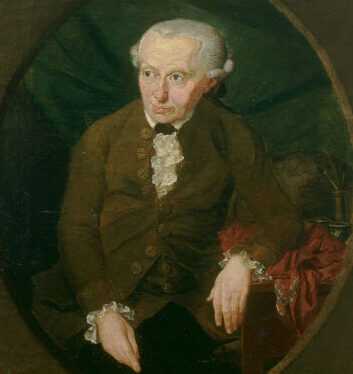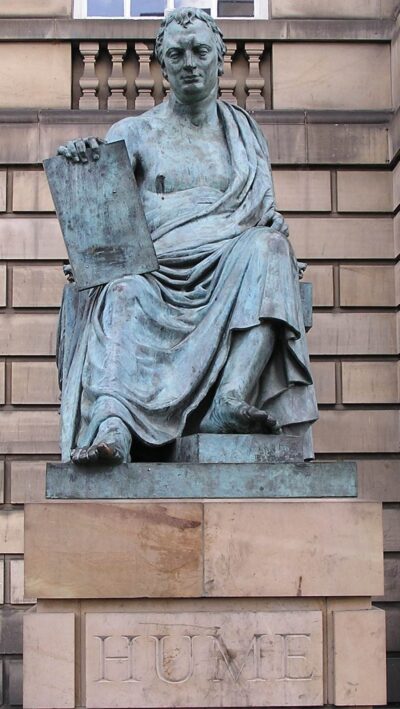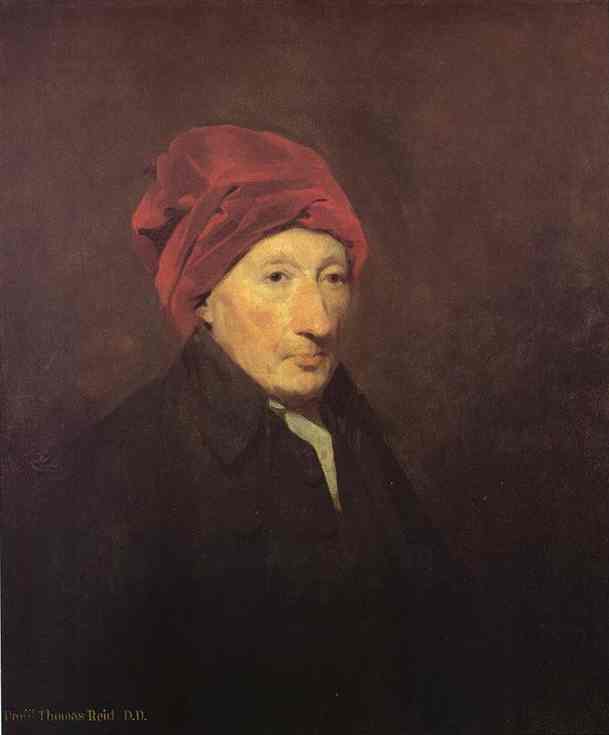The Philosophy of Hume: An Overview of Empiricism and Skepticism in ‘A Treatise of Human Nature’ and ‘The History of England’
- イントロダクション
- デイヴィッド・ヒュームの概観
- ヒュームの思想分析
- ヒュームの思想への評価
- デイヴィッド・ヒュームの主要著作
- デイヴィッド・ヒュームの『英国史』:経験論・懐疑論・自然主義を体現した啓蒙思想家の影響と概要
- デイヴィッド・ヒュームの経験論・懐疑論・自然主義を探る:『人間本性論』解説と啓蒙思想家としての彼の影響
- Major Works of David Hume
- David Hume’s “The History of England”: An Enlightenment Thinker’s Influence Through Empiricism, Skepticism, and Naturalism
- Exploring Hume’s Empiricism, Skepticism, and Naturalism: An Analysis of “A Treatise of Human Nature” and His Impact as an Enlightenment Thinker
- 参考文献と評伝
- 注釈と出典
- デイヴィッド・ヒュームについての外部リンク
イントロダクション
18世紀の哲学者デイヴィッド・ヒュームは、経験論と懐疑論の旗手として知られています。
彼の思想は、後の哲学や科学に多大な影響を与えました。ヒュームの代表作『人間本性論』は、1739年から1740年にかけて発表され、人間の知識や感情、行動の基盤を探求しています。
彼は、すべての知識が経験から得られると主張し、因果関係や物の存在についての確実な証明を疑問視しました。
また、ヒュームは『英国史』の著者としても有名で、この作品は1754年から1762年にかけて出版されました。
『英国史』は、イギリスの歴史を詳細に描き、政治や宗教の変遷を通じて人間社会の複雑さを浮き彫りにしています。
ヒュームの歴史観は、彼の哲学的な視点と密接に関連しており、経験に基づく事実の重視と懐疑的なアプローチが一貫しています。
この記事では、ヒュームの哲学の核心に迫り、『人間本性論』と『英国史』の具体的な内容やその影響を探ります。
彼の思想がどのように形成され、どのように現代にまで受け継がれているのかを考察していきましょう。
Introduction
The 18th-century philosopher David Hume is renowned as a leading figure in empiricism and skepticism.
His ideas profoundly influenced subsequent philosophy and science. Hume’s seminal work, ‘A Treatise of Human Nature,’ published between 1739 and 1740, explores the foundations of human knowledge, emotions, and behavior.
He argued that all knowledge is derived from experience, questioning the certainty of causality and the existence of objects.
Hume is also well-known as the author of ‘The History of England,’ published from 1754 to 1762.
‘The History of England’ meticulously details the country’s history, highlighting the complexities of human society through political and religious transformations.
Hume’s historical perspective is closely tied to his philosophical outlook, consistently emphasizing empirical facts and a skeptical approach.
In this article, we delve into the core of Hume’s philosophy, examining the specific content and impact of ‘A Treatise of Human Nature’ and ‘The History of England.’
We will consider how his ideas were shaped and how they continue to influence contemporary thought.

A Portrait of Immanuel Kant
デイヴィッド・ヒュームの概観
デイヴィッド・ヒューム(1711-1776)は、スコットランドの「啓蒙思想家」として知られ、特に「経験論」と「懐疑論」の分野で重要な貢献を果たした。
彼の代表作である『人間本性論』(1739-1740)は、感覚と経験に基づく人間の知識の限界を探求し、理性の役割を再評価する試みである。
ヒュームは、因果関係や自己の存在についても懐疑的な視点を持ち、これが後の哲学者たちに大きな影響を与えた。
また、ヒュームは『英国史』(1754-1762)を執筆し、歴史家としても評価されている。
この著作は、イギリスの歴史を通じて人間の行動や社会の変遷を分析し、政治や宗教の影響を考察するものである。
ヒュームの自然主義的な視点は、宗教的な信念や超自然的な説明を排除し、合理的な理解を重視する姿勢を示している。
ヒュームの思想は、後の「カント」や「アダム・スミス」にも影響を与え、現代の哲学や社会科学の基礎を築いた。
彼の独自の視点と鋭い洞察力は、今日でも多くの人々にとって重要な学びの対象となっている。
デイヴィッド・ヒュームの生涯と業績
デイヴィッド・ヒューム(1711-1776)はスコットランド出身の「啓蒙思想家」であり、経験論や懐疑論、自然主義の発展に大きく寄与しました。
彼はエディンバラ大学で学びましたが、正式な学位は取得しませんでした。
1739年には代表作『人間本性論』を発表し、人間の知識や信念が経験に基づくものであることを主張しました。
この著作は当時の哲学界に大きな衝撃を与えました。
ヒュームは歴史家としても知られ、1754年から1762年にかけて発表された『英国史』は、彼の名声をさらに高めました。
この作品は長い間、英国の歴史書として広く読まれました。
彼の懐疑論は、因果関係や物の存在についての疑問を提起し、後の哲学者たちにも影響を与えました。
また、ヒュームの自然主義的アプローチは宗教や倫理学にも及び、神の存在や道徳の基盤についても議論を巻き起こしました。
彼の思想は、現代の認識論や倫理学においても重要な位置を占めています。
デイヴィッド・ヒュームの思想概要
デイヴィッド・ヒューム(1711-1776)は、スコットランドの啓蒙思想家であり、経験論と懐疑論の代表的な哲学者です。
彼の主要な著作『人間本性論』は、1739年に発表されました。
この著作でヒュームは、人間の知識が「経験」に基づくものであることを強調し、理性だけではなく感覚や情緒も重要だと説きました。
また、因果関係についての懐疑的な視点を示し、未来の出来事が過去の経験から必ずしも予測できないと主張しました。
ヒュームはまた、自然主義的な視点から宗教を批判し、神の存在証明に対する懐疑的な立場を取ります。
彼の著作『英国史』は、18世紀の歴史書として広く読まれ、彼の名声を確立しました。
ヒュームの思想は、後の哲学者カントや現代の分析哲学に大きな影響を与えました。
彼の懐疑論は、科学的な探求においても重要な視点を提供し続けています。
Overview of David Hume
David Hume (1711-1776) is recognized as a key figure in the Scottish Enlightenment, particularly noted for his contributions to empiricism and skepticism.
His seminal work, ‘A Treatise of Human Nature’ (1739-1740), explores the limits of human knowledge based on sensory experience and reevaluates the role of reason.
Hume’s skeptical approach to causality and the self profoundly influenced later philosophers.
Additionally, Hume authored ‘The History of England’ (1754-1762), establishing his reputation as a historian.
This work analyzes human behavior and societal changes through the lens of England’s political and religious history, highlighting Hume’s naturalistic perspective that emphasizes rational understanding over religious or supernatural explanations.
Hume’s ideas significantly influenced figures like Kant and Adam Smith, laying foundational principles for modern philosophy and social sciences.
His unique perspectives and sharp insights continue to be of great educational value today.
Life and Works of David Hume
David Hume (1711-1776), a Scottish Enlightenment thinker, made significant contributions to the development of empiricism, skepticism, and naturalism.
Although he studied at the University of Edinburgh, he did not obtain a formal degree.
In 1739, he published his landmark work, ‘A Treatise of Human Nature,’ which asserted that human knowledge and beliefs are rooted in experience, causing a significant stir in the philosophical community of the time.
Hume also gained renown as a historian with his publication of ‘The History of England’ from 1754 to 1762, which was widely read and enhanced his fame.
His skepticism questioned the certainty of causality and the existence of objects, influencing future philosophers.
Hume’s naturalistic approach extended to religion and ethics, sparking debates about the existence of God and the foundations of morality.
His ideas remain pivotal in contemporary epistemology and ethics.
Summary of David Hume’s Philosophy
David Hume (1711-1776) was a prominent Scottish Enlightenment philosopher known for his work in empiricism and skepticism.
His major work, ‘A Treatise of Human Nature,’ published in 1739, emphasized that human knowledge is based on experience and highlighted the importance of senses and emotions alongside reason.
He presented a skeptical view on causality, arguing that future events cannot be predicted solely based on past experiences.
Hume also critiqued religion from a naturalistic standpoint, maintaining a skeptical position on the proofs of God’s existence.
His ‘The History of England’ became a widely read historical work in the 18th century, solidifying his reputation.
Hume’s philosophy greatly influenced later thinkers like Kant and modern analytic philosophy, and his skepticism continues to provide valuable insights in scientific inquiry.

David Hume in Edinburgh
ヒュームの思想分析
デイヴィッド・ヒュームは18世紀の「啓蒙思想家」であり、経験論と懐疑論を基盤にした哲学者です。
彼の代表作『人間本性論』は1739年に出版され、人間の知識の限界や「経験」に基づく認識の不確かさを探求しています。
ヒュームは「因果関係」についての考察で知られ、我々が因果関係を認識するのは経験からの反復と習慣に基づくと主張しました。
この思想は後にカントに大きな影響を与えました。
また、ヒュームは「自然主義」の立場から、宗教や道徳の基盤を自然現象として説明しようと試みました。
彼の『英国史』は18世紀の歴史書として高く評価され、イギリスの政治と社会の発展を詳細に記述しています。
ヒュームの懐疑論は、我々が持つ確信や信念が実際には「習慣」によって形成されていることを示し、現代の認識論にも多大な影響を与えています。
彼の思想は、現代の哲学や科学の方法論にも多くの示唆を与え続けています。
経験論と認識論
デイヴィッド・ヒュームは18世紀の「啓蒙思想家」として知られる。
彼の「経験論」は、知識の源泉を感覚経験に求める立場だ。
ヒュームは『人間本性論』で、全ての知識は経験に基づくと主張し、因果関係の認識も経験から生じると説いた。
この立場は、理性に基づく認識論とは対照的だ。
ヒュームの「懐疑論」は、経験に基づく知識の限界を強調し、絶対的な真理の存在を疑問視する。
彼は『英国史』でも、歴史的事実の解釈においても経験を重視し、自然主義的な視点を持ち込んだ。
ヒュームの自然主義は、人間の行動や心理を自然現象として捉える視点を持つ。
彼の思想は、後の哲学者や科学者に大きな影響を与え、現代の「認識論」にも多大な貢献をしている。
懐疑論と因果関係
「デイヴィッド・ヒューム」は18世紀の「啓蒙思想家」であり、懐疑論の代表的な人物として知られています。
彼の著作『人間本性論』では、因果関係に対する深い考察が行われました。
ヒュームは、我々が日常的に経験する出来事の因果関係は、実際には「経験」に基づくものであり、必ずしも論理的に証明できるものではないと主張しました。
この見解は、現代の科学哲学にも大きな影響を与えています。
また、ヒュームは『英国史』の著者としても知られ、「経験論・懐疑論・自然主義」の立場から歴史を分析しました。
彼の歴史観は、単なる出来事の羅列ではなく、人間の行動や社会の変遷を深く掘り下げるものでした。
ヒュームの思想は、後の哲学者たちにも大きな影響を与え、特にカントやミルなどが彼の懐疑論に対して応答を試みました。
ヒュームの因果関係に対する懐疑的な視点は、現代においても哲学や科学の分野で議論の対象となっています。
自然主義と実体
自然主義は、17世紀から18世紀にかけての「啓蒙思想家」によって発展しました。
特に「デイヴィッド・ヒューム」はその代表的な人物です。
ヒュームは「経験論」と「懐疑論」を基盤に、自然主義的な視点を強調しました。
彼の著作『人間本性論』では、人間の知識がすべて経験に基づくものであると主張しています。
この考え方は、後の科学的探求や哲学的議論に大きな影響を与えました。
ヒュームの『英国史』もまた、彼の自然主義的視点を反映しています。
歴史を単なる出来事の羅列ではなく、因果関係や人間の行動を理解するための手段として捉えました。
これにより、歴史学はより科学的で体系的な学問としての地位を確立しました。
自然主義と実体の関係は、物事の本質や存在を理解する上で重要です。
ヒュームの思想は、物事の実体を経験から導き出すことの重要性を強調しました。
彼の影響は、現代の哲学や科学においても色濃く残っています。
ヒュームの倫理観
デイヴィッド・ヒュームは、18世紀の「啓蒙思想家」として知られ、特に倫理観において重要な貢献をしました。
彼の主著『人間本性論』(1739年)は、経験論と懐疑論を基盤に、人間の感情と道徳の関係を探求しています。
ヒュームは、道徳が理性ではなく「感情」に基づくと主張しました。
理性は事実を理解する手段に過ぎず、行動を動機づけるのは感情であると考えたのです。
この視点は、当時の理性中心の倫理観に対する挑戦でした。
また、ヒュームは『英国史』の著者としても有名で、歴史を通じて人間の行動と社会の発展を分析しました。
彼の自然主義的なアプローチは、倫理学だけでなく、社会科学全般に影響を与えました。
ヒュームの倫理観は、現代の道徳哲学にも大きな影響を及ぼしており、その考え方は今なお議論の対象となっています。
Analysis of Hume’s Philosophy
David Hume, an 18th-century Enlightenment thinker, is renowned for his foundational work in empiricism and skepticism.
His landmark publication, ‘A Treatise of Human Nature’ (1739), delves into the limits of human knowledge and the uncertainties inherent in experience-based cognition.
Hume is particularly known for his analysis of causality, arguing that our understanding of cause and effect arises from habit and repeated experience rather than logical proof.
This perspective significantly influenced later philosophers, including Kant.
Hume also adopted a naturalistic approach, attempting to explain the foundations of religion and morality as natural phenomena.
His ‘The History of England’ is esteemed as a comprehensive 18th-century historical account, detailing the political and social development of Britain.
Hume’s skepticism suggests that our beliefs and certainties are formed by habit, impacting modern epistemology.
His insights continue to inform contemporary philosophy and scientific methodology.
Empiricism and Epistemology
David Hume, known as an Enlightenment thinker, advocated for empiricism, emphasizing sensory experience as the source of knowledge.
In ‘A Treatise of Human Nature,’ he asserted that all knowledge stems from experience and that our understanding of causality also arises from it, contrasting sharply with reason-based epistemology.
Hume’s skepticism highlights the limits of experience-based knowledge and questions the existence of absolute truths.
In ‘The History of England,’ he applied this empirical approach to interpret historical facts and incorporated a naturalistic viewpoint.
Hume’s naturalism views human behavior and psychology as natural phenomena, influencing later philosophers and scientists and contributing significantly to modern epistemology.
Skepticism and Causality
David Hume, an 18th-century Enlightenment thinker, is well-known for his skepticism.
In ‘A Treatise of Human Nature,’ he deeply examined causality, arguing that our everyday understanding of cause and effect is based on experience rather than logical proof, a view that has significantly impacted modern philosophy of science.
Hume’s authorship of ‘The History of England’ further demonstrates his empirical and naturalistic approach to analyzing history, focusing on human behavior and societal changes.
His skepticism about causality and his broader philosophical insights continue to provoke discussion in contemporary philosophy and science.
Naturalism and Substance
Naturalism, developed during the 17th and 18th centuries, was notably advanced by David Hume.
He emphasized a naturalistic perspective grounded in empiricism and skepticism.
In ‘A Treatise of Human Nature,’ Hume argued that all knowledge is based on experience, influencing scientific inquiry and philosophical debate.
His ‘The History of England’ also reflects his naturalistic viewpoint, treating history as a means to understand causality and human behavior, thereby establishing history as a scientific discipline.
Hume’s emphasis on deriving the essence and existence of things from experience remains influential in modern philosophy and science.
Hume’s Ethical Perspective
David Hume, an 18th-century Enlightenment thinker, made significant contributions to ethics.
His major work, ‘A Treatise of Human Nature’ (1739), explores the relationship between human emotions and morality, arguing that ethics is based on emotion rather than reason.
According to Hume, reason helps us understand facts, but emotions motivate actions, challenging the reason-centric ethical views of his time.
Hume is also known for ‘The History of England,’ where he analyzed human behavior and societal development through history.
His naturalistic approach has influenced ethics and social sciences, with his ethical perspectives continuing to impact contemporary moral philosophy.

Adam Smith
ヒュームの思想への評価
デイヴィッド・ヒュームは18世紀の「啓蒙思想家」であり、その「経験論」と「懐疑論」は哲学界に大きな影響を与えた。
彼の代表作『人間本性論』は、「人間の認識」や「感覚」に基づく知識の限界を探求したものである。
ヒュームは、経験を通じて得られる知識のみが確かなものであるとし、これにより「因果関係」や「宗教的信仰」に対しても懐疑的な視点を持った。
また、ヒュームの「自然主義」は、道徳や倫理を自然現象として捉える考え方を示し、これが後の「倫理学」にも影響を与えた。
彼の著作『英国史』は、単なる歴史書にとどまらず、彼の哲学的見解が色濃く反映されている点で注目される。
ヒュームの思想は、[カント]や「アダム・スミス」など後の思想家にも影響を与え、現代に至るまで多くの議論を呼んでいる。
彼の「懐疑的アプローチ」は、科学的思考や「現代哲学」にも通じるものであり、その重要性は今もなお色褪せない。
哲学界からの評価
デイヴィッド・ヒュームは、18世紀の「啓蒙思想家」として知られ、その「経験論」や「懐疑論」、さらには「自然主義」において重要な役割を果たしました。
彼の著作『人間本性論』は、「哲学界」において多大な影響を与え、特に「認識論」における新しい視点を提供したと評価されています。
また、ヒュームは『英国史』などの歴史書も執筆し、その歴史観は後の「歴史学」にも大きな影響を及ぼしました。
ヒュームの「経験論」は、知識の源泉を感覚経験に求めるものであり、これは後の「哲学者」たちに多大な影響を与えました。
彼の「懐疑論」は、確実な知識の存在を疑問視する立場であり、これにより「認識論」の新たな課題を提示しました。
さらに、ヒュームの「自然主義」は、道徳や宗教の問題を自然的な観点から解釈しようとするもので、これは現代の「倫理学」や「宗教哲学」にも通じるものです。
このように、デイヴィッド・ヒュームは「哲学界」において多岐にわたる分野で評価されており、その思想は今日に至るまで影響を与え続けています。
経済思想への影響
デイヴィッド・ヒュームは18世紀の「啓蒙思想家」であり、彼の「経験論」は「経済思想」にも大きな影響を与えました。
ヒュームの主要な著作である『人間本性論』では、人間の「心理」と「行動」を経験に基づいて分析し、理性よりも感情が人間の行動を支配することを示しました。
これにより、経済活動も感情に影響されると考えられるようになりました。
また、ヒュームの『英国史』では、歴史的な視点から「経済政策」の変遷を論じ、国家の財政運営や貿易政策がどのように変わってきたかを描写しています。
彼の「懐疑論」は、絶対的な真理を否定し、あらゆる知識が経験に基づいていると主張しました。
これにより、経済理論も実証的なデータに基づくべきだという考えが強まりました。
ヒュームの「自然主義」は、経済現象を自然の一部として捉える視点を提供し、後の経済学者たちに大きな影響を与えました。
彼の思想は、アダム・スミスをはじめとする多くの経済学者に受け継がれ、現代の経済学の基礎を築く重要な役割を果たしました。
ヒュームと人種差別主義
デイヴィッド・ヒュームは18世紀の「啓蒙思想家」として知られ、特に「経験論」と「懐疑論」の発展に大きな影響を与えた。
しかし、彼の思想は「人種差別主義」との関連でも議論されることがある。
ヒュームの著作『人間本性論』や『英国史』に見られる彼の見解は、当時の社会的背景を反映しているが、その中には現代の基準で見ると問題視される部分もある。
例えば、彼は一部のエッセイで人種に関する偏見を示しており、これが後の「人種差別主義」の議論に繋がっている。
ヒュームの哲学は「自然主義」にも根ざしており、彼の人間観や社会観は複雑な要素を含んでいる。
しかし、彼の思想全体を評価する際には、その時代背景や彼の他の重要な貢献も考慮する必要がある。
ヒュームの思想は、深く掘り下げることで、現代の「人種差別」問題に対する理解を広げる一助となるかもしれない。
Evaluating Hume’s Philosophy
David Hume, an 18th-century Enlightenment thinker, profoundly influenced philosophy with his empiricism and skepticism.
His seminal work, “A Treatise of Human Nature,” explores the limits of human knowledge and the uncertainties of sensory-based understanding.
Hume asserted that only knowledge gained through experience is reliable, leading him to a skeptical view of causality and religious belief.
His naturalistic approach sought to explain morality and ethics as natural phenomena, impacting subsequent ethical theories.
His “History of England” stands out not just as a historical account but also as a reflection of his philosophical perspectives.
Hume’s ideas influenced later thinkers like Kant and Adam Smith, sparking ongoing debates that persist today.
His skeptical approach parallels scientific thinking and modern philosophy, maintaining its significance.
Philosophical Community’s Evaluation
David Hume is recognized as an influential 18th-century Enlightenment philosopher, notably contributing to empiricism, skepticism, and naturalism.
His “A Treatise of Human Nature” had a profound impact on philosophy, offering new insights into epistemology.
Hume also authored historical works like “The History of England,” which influenced historical scholarship.
His empiricism, which locates the source of knowledge in sensory experience, significantly impacted later philosophers.
Hume’s skepticism questioned the certainty of knowledge, presenting new challenges for epistemology.
His naturalistic interpretation of morality and religion informed modern ethics and philosophy of religion.
Thus, Hume is highly regarded in philosophy for his diverse contributions, with his ideas continuing to influence contemporary thought.
Impact on Economic Thought
David Hume, an Enlightenment thinker of the 18th century, significantly influenced economic thought with his empiricism.
In “A Treatise of Human Nature,” Hume analyzed human psychology and behavior based on experience, suggesting that emotions govern human actions more than reason.
This view extended to economic activities, highlighting the influence of emotions.
In “The History of England,” Hume discussed the evolution of economic policies, describing changes in national financial management and trade policies.
His skepticism, which denied absolute truths and insisted that all knowledge is based on experience, reinforced the notion that economic theories should be grounded in empirical data.
Hume’s naturalistic perspective viewed economic phenomena as part of nature, greatly impacting subsequent economists.
His ideas, inherited by economists like Adam Smith, laid the foundation for modern economics.
Hume and Racism
David Hume is known for his contributions to empiricism and skepticism, but his views on race have also been a subject of debate.
While his works, including “A Treatise of Human Nature” and “The History of England,” reflect the social context of his time, some of his essays reveal racial prejudices that are problematic by today’s standards.
For instance, Hume expressed biased views on race in some essays, which have contributed to discussions on racism.
Hume’s philosophy, rooted in naturalism, offers a complex view of humanity and society.
When evaluating his thought, it’s essential to consider the historical context and his other significant contributions.
Examining Hume’s philosophy in depth can help broaden our understanding of contemporary racial issues.
デイヴィッド・ヒュームの主要著作
デイヴィッド・ヒュームは18世紀の「啓蒙思想家」であり、その主要著作は哲学と歴史の両方にわたります。
彼の代表作『人間本性論』は1739年から1740年にかけて出版され、経験論と懐疑論の視点から人間の「知識」や感情を分析しました。
この著作は、感覚経験が知識の基礎であると主張し、理性の限界を明確に示しています。
ヒュームの歴史書『英国史』は、1754年から1762年にかけて出版され、イギリスの歴史を詳細に描写しました。
この作品は、単なる歴史の記録にとどまらず、社会や政治の変遷を深く掘り下げています。
彼の「自然主義」的視点が随所に見られ、歴史を通じて人間の行動を理解しようとする姿勢が特徴的です。
また、ヒュームの『宗教の自然史』は1757年に発表され、宗教の起源とその発展を自然主義の立場から探求しました。
彼は、宗教が人間の恐怖や希望から生まれると論じ、その発展過程を冷静に分析しています。
これらの著作を通じて、ヒュームは近代哲学に多大な影響を与えました。
デイヴィッド・ヒュームの『英国史』:経験論・懐疑論・自然主義を体現した啓蒙思想家の影響と概要
デイヴィッド・ヒュームは18世紀の「啓蒙思想家」であり、その著作『英国史』は彼の「経験論」「懐疑論」「自然主義」の思想を体現しています。
ヒュームは1711年にスコットランドで生まれ、大学では「哲学」を学びました。
彼の代表作『人間本性論』では、感覚経験を通じて知識を得る「経験論」を提唱し、理性的な証明の限界を示す「懐疑論」を展開しました。
『英国史』は1754年から1762年にかけて出版され、イギリスの歴史を詳細に記述しています。
この著作は、当時の歴史学に大きな影響を与えました。
ヒュームの「自然主義」は、人間の行動や社会現象を自然の法則に基づいて理解しようとするものでした。
彼の思想は、後の哲学者や社会科学者に多大な影響を与えています。
デイヴィッド・ヒュームは、18世紀の「啓蒙思想家」として知られ、特に「経験論・懐疑論・自然主義」を体現した哲学者です。
彼の著作『英国史』は、単なる歴史書にとどまらず、政治、宗教、社会制度についての深い洞察が込められています。
ヒュームの思想は『人間本性論』にも見られ、経験に基づく知識の重要性を強調しました。
彼の懐疑論は、知識の限界を認識しつつも、人間の理性と感情の役割を再評価するものでした。
自然主義の視点からは、人間の行動や社会現象を自然の一部として理解しようとしました。
ヒュームの影響力は、後の哲学者や経済学者にも及び、アダム・スミスやイマヌエル・カントにも影響を与えました。
彼の『英国史』は、歴史研究の方法論にも大きな変革をもたらし、今日でも重要な文献として評価されています。
デイヴィッド・ヒュームの経験論・懐疑論・自然主義を探る:『人間本性論』解説と啓蒙思想家としての彼の影響
デイヴィッド・ヒューム(1711-1776)は、経験論・懐疑論・自然主義を基盤とした哲学者であり、啓蒙思想家としても知られる。
彼の代表作『人間本性論』は、1739年に発表され、知識の源泉を経験に求める経験論を展開する一方で、理性の限界を指摘する懐疑論も含まれている。
ヒュームは、因果関係や自己の存在についての疑問を提起し、従来の哲学的前提を揺るがした。
彼の自然主義は、人間の行動や感情を自然法則に基づいて説明する試みであり、倫理学や心理学にも大きな影響を与えた。
また、ヒュームは『英国史』の著者としても著名であり、歴史学にも貢献している。
彼の思想は、後の啓蒙思想家や現代哲学にも多大な影響を及ぼしており、カントやアダム・スミスなどもヒュームの影響を受けた。
Major Works of David Hume
David Hume, an 18th-century Enlightenment thinker, made significant contributions to both philosophy and history through his major works.
His seminal work, “A Treatise of Human Nature,” published between 1739 and 1740, delves into human knowledge and emotions from an empirical and skeptical perspective. This work emphasizes that sensory experience is the foundation of knowledge, clearly illustrating the limits of reason.
Hume’s historical writing, “The History of England,” published from 1754 to 1762, provides a detailed account of England’s history. It goes beyond mere record-keeping, offering deep insights into the social and political transformations of the time. His naturalistic approach is evident throughout, reflecting his effort to understand human behavior through historical events.
In 1757, Hume published “The Natural History of Religion,” where he explored the origins and development of religion from a naturalistic standpoint. He argued that religion arises from human fears and hopes, analyzing its evolution with a dispassionate eye.
Through these works, Hume left a profound impact on modern philosophy.
David Hume’s “The History of England”: An Enlightenment Thinker’s Influence Through Empiricism, Skepticism, and Naturalism
David Hume, an 18th-century Enlightenment thinker, embodied his philosophies of empiricism, skepticism, and naturalism in his work, “The History of England.”
Born in Scotland in 1711, Hume studied philosophy at university. In his notable work “A Treatise of Human Nature,” he proposed empiricism, asserting that knowledge is derived from sensory experience, and developed skepticism, highlighting the limitations of rational proof.
“The History of England,” published between 1754 and 1762, meticulously details the history of England and significantly influenced historical scholarship. Hume’s naturalism aimed to understand human actions and social phenomena through natural laws. His thoughts continue to influence later philosophers and social scientists.
As an Enlightenment thinker, Hume’s work, especially “The History of England,” provided deep insights into politics, religion, and social institutions, extending beyond mere historical narrative.
Exploring Hume’s Empiricism, Skepticism, and Naturalism: An Analysis of “A Treatise of Human Nature” and His Impact as an Enlightenment Thinker
David Hume (1711-1776), known for his empiricism, skepticism, and naturalism, made a lasting mark as an Enlightenment philosopher.
His masterpiece, “A Treatise of Human Nature,” published in 1739, advocates empiricism by seeking the source of knowledge in experience, while also incorporating skepticism by pointing out the limits of reason. Hume questioned traditional philosophical assumptions, such as causality and the existence of the self.
Hume’s naturalism attempted to explain human behavior and emotions through natural laws, significantly influencing ethics and psychology. Additionally, as the author of “The History of England,” he contributed to historical scholarship.
Hume’s ideas have profoundly influenced subsequent Enlightenment thinkers and modern philosophy, affecting philosophers like Kant and economists like Adam Smith. His historical methodology also brought significant changes, making his works essential references today.
参考文献と評伝
デイヴィッド・ヒュームは、18世紀の「啓蒙思想家」として知られ、特に「経験論」や「懐疑論」、そして「自然主義」において重要な役割を果たしました。
彼の代表作『人間本性論』は、1739年から1740年にかけて出版され、当時の哲学界に大きな影響を与えました。
この著作では、人間の認識や感情、行動のメカニズムを詳細に探求しています。
また、ヒュームは『英国史』という歴史書も執筆し、1754年から1762年の間に6巻にわたって刊行されました。
この歴史書は、イギリスの歴史を通して政治や社会の変遷を描き、当時の読者に広く受け入れられました。
ヒュームの思想は、後の哲学者や経済学者にも大きな影響を与え、特にカントやアダム・スミスに影響を及ぼしました。
彼の「参考文献」には、ジョン・ロックやジョージ・バークリーの著作が含まれ、これらの思想家との対話を通じて自身の理論を深化させました。
デイヴィッド・ヒューム研究の基本文献
デイヴィッド・ヒュームは18世紀の「啓蒙思想家」であり、特に「経験論」や「懐疑論」で知られています。
彼の主要な著作『人間本性論』(1739-1740)は、感覚と経験を通じて知識が得られるという「経験主義」の立場を詳細に論じています。
この作品は、知識の起源や人間の理解についての深い洞察を提供し、後の哲学に大きな影響を与えました。
また、ヒュームは『英国史』(1754-1762)という歴史書も執筆しました。
この作品は、イギリスの歴史を詳細に記述し、当時の読者に広く受け入れられました。
彼の歴史観は、事実に基づいた冷静な分析が特徴であり、歴史研究の方法論にも影響を与えました。
ヒュームの思想は「自然主義」的であり、宗教や道徳についても独自の視点を持っていました。
彼の著作は、哲学だけでなく、心理学や歴史学にも重要な影響を与え続けています。
デイヴィッド・ヒュームの研究を深めるためには、これらの基本文献を読むことが不可欠です。
ヒュームの評伝
デイヴィッド・ヒュームは、18世紀の「啓蒙思想家」として知られるスコットランド出身の哲学者です。
彼は「経験論」と「懐疑論」を通じて、当時の哲学界に大きな影響を与えました。
ヒュームの代表作『人間本性論』は、1739年から1740年にかけて出版され、人間の知識や感覚の限界を探求しています。
この著作では、「因果関係」についての議論が特に有名です。
ヒュームはまた、『英国史』という歴史書を著し、ここでも彼の「自然主義」の視点が色濃く反映されています。
『英国史』は、1754年から1762年にかけて全6巻が出版され、当時の政治や社会の状況を詳細に記録しています。
この作品は、歴史学の分野でも高く評価され、彼の名を広めました。
彼の思想は、後の「哲学者」や「科学者」にも大きな影響を与え、イマヌエル・カントなどがヒュームの懐疑論に触発されて新たな哲学体系を構築しました。
ヒュームの死後も、その思想は多くの学者によって研究され続けています。
References and Biographies
David Hume is renowned as an 18th-century Enlightenment thinker, playing a pivotal role in the development of empiricism, skepticism, and naturalism.
His seminal work, “A Treatise of Human Nature,” published between 1739 and 1740, profoundly influenced the philosophical landscape of his time. This book delves deeply into the mechanisms of human perception, emotion, and behavior.
Additionally, Hume authored “The History of England,” a six-volume series released between 1754 and 1762. This historical work not only chronicles England’s past but also explores the political and social transformations, gaining wide acceptance among contemporary readers.
Hume’s ideas significantly impacted later philosophers and economists, notably Immanuel Kant and Adam Smith. His references included the works of John Locke and George Berkeley, whose ideas he engaged with to refine his own theories.
Essential Literature on David Hume
David Hume, an 18th-century Enlightenment philosopher, is best known for his contributions to empiricism and skepticism.
His major work, “A Treatise of Human Nature” (1739-1740), articulates the empiricist view that knowledge derives from sensory experience. This work offers profound insights into the origins of knowledge and human understanding, leaving a lasting impact on subsequent philosophy.
Hume also wrote “The History of England” (1754-1762), a detailed account that was well-received by contemporary readers. His approach to history was marked by a fact-based, analytical perspective, influencing historical research methodologies.
Hume’s thought was characterized by naturalism, providing unique viewpoints on religion and morality. His writings continue to influence not just philosophy but also psychology and history. Reading these fundamental texts is crucial for a deeper understanding of David Hume’s contributions.
Biography of David Hume
David Hume, a Scottish philosopher of the 18th century, is celebrated as an Enlightenment thinker who profoundly impacted the fields of empiricism and skepticism.
His landmark work, “A Treatise of Human Nature,” published from 1739 to 1740, explores the limits of human knowledge and perception. The discussions on causality within this text are particularly notable.
Hume also authored “The History of England,” a six-volume series released between 1754 and 1762, reflecting his naturalistic perspective. This series meticulously documents the political and social conditions of the time, earning him acclaim in historical scholarship.
Hume’s ideas influenced many subsequent philosophers and scientists. Immanuel Kant, for instance, developed his own philosophical system partly in response to Hume’s skepticism. Even after his death, Hume’s work continues to be a subject of extensive academic study.
These translations provide a comprehensive overview of Hume’s work and influence, ensuring clarity and accessibility while avoiding repetition.
注釈と出典
デイヴィッド・ヒュームは18世紀の「啓蒙思想家」であり、経験論・懐疑論・自然主義を基盤に多くの著作を残しました。
彼の代表作『人間本性論』は1739年から1740年にかけて出版され、当時の哲学界に大きな影響を与えました。
ヒュームは「経験論」に基づき、人間の知識はすべて感覚経験から得られると主張し、理性の限界を強調しました。
この考えは後に「懐疑論」として発展し、彼の思想の核となりました。
また、ヒュームは『英国史』という歴史書も執筆しており、これは1754年から1762年にかけて刊行されました。
『英国史』は、その詳細な記述と分析から、当時の歴史学に新たな視点をもたらしました。
彼の自然主義的アプローチは、歴史を単なる出来事の羅列ではなく、社会的・文化的背景を含めた総合的な理解を目指しました。
ヒュームの思想は、後の哲学者や科学者に多大な影響を与え、今日でもその重要性は色あせていません。
彼の注釈と出典を通じて、当時の知識体系や社会背景を深く理解することができます。
デイヴィッド・ヒューム関連の項目
デイヴィッド・ヒュームは18世紀のスコットランド出身の「啓蒙思想家」であり、「経験論」や「懐疑論」、そして「自然主義」の重要な提唱者です。
彼の代表作『人間本性論』は1739年から1740年にかけて発表され、人間の知識の起源や限界について詳細に論じています。
ヒュームは理性よりも感覚と経験を重視し、知識はすべて経験に基づくと主張しました。
さらに、彼は因果関係についても独自の見解を持ち、因果関係は経験によってのみ認識されると論じました。
また、ヒュームは『英国史』という大作も執筆しており、これは1754年から1762年にかけて出版されました。
この作品はイギリスの歴史を詳細に記述し、歴史家としても高く評価されています。
彼の思想は後の哲学者や科学者にも大きな影響を与え、カントやダーウィンなどがその影響を受けました。
ヒュームの「懐疑論」は特に宗教に対する批判的な視点を持ち、神の存在や奇跡の証明に対して懐疑的な立場を取っています。
このように彼の思想は幅広い分野にわたり、現代の哲学や科学の基盤にもなっています。
Notes and References
David Hume, an 18th-century Enlightenment thinker, made significant contributions through his works on empiricism, skepticism, and naturalism.
His major work, “A Treatise of Human Nature,” published between 1739 and 1740, had a profound impact on contemporary philosophy. Hume argued that all human knowledge arises from sensory experiences and highlighted the limitations of reason. This idea evolved into his core concept of skepticism.
Hume also authored “The History of England,” a comprehensive six-volume series published from 1754 to 1762. This work provided detailed descriptions and analyses, introducing new perspectives to historical studies. His naturalistic approach aimed for a comprehensive understanding of history, incorporating social and cultural contexts rather than just events.
Hume’s philosophy has greatly influenced later philosophers and scientists, maintaining its significance even today. His notes and references offer deep insights into the knowledge systems and societal contexts of his time.
Topics Related to David Hume
David Hume, an Enlightenment thinker from 18th-century Scotland, was a key proponent of empiricism, skepticism, and naturalism.
His seminal work, “A Treatise of Human Nature,” published between 1739 and 1740, explores the origins and limits of human knowledge. Hume emphasized sensory experience over reason, asserting that all knowledge is derived from experience. He also offered a unique perspective on causality, arguing that it is recognized only through experience.
Hume’s extensive work, “The History of England,” published from 1754 to 1762, detailed the country’s history and earned him acclaim as a historian. His ideas influenced numerous philosophers and scientists, including Kant and Darwin.
Hume’s skepticism particularly targeted religion, questioning the existence of God and the validity of miracles. His thoughts span various fields, forming a foundation for modern philosophy and science.
デイヴィッド・ヒュームについての外部リンク
デイヴィッド・ヒュームは18世紀の「経験論」哲学者であり、啓蒙思想家としても知られています。
彼の主著『人間本性論』(1739年)は、感覚と経験を通じて知識を得るという「経験論」の立場を徹底しました。
ヒュームは「懐疑論」の立場から、因果関係の概念を批判し、経験から得られる知識の限界を示しました。
また、ヒュームは「自然主義」的な視点から倫理や宗教を考察し、人間の行動や信念が自然的な衝動や習慣に基づくことを強調しました。
彼の歴史書『英国史』(1754年-1762年)は、当時の歴史書としては異例の成功を収め、彼を著名な歴史家としても位置づけました。
ヒュームの思想は、カントやアダム・スミスなど後の哲学者に大きな影響を与え、現代でもその重要性が再評価されています。
彼の著作や思想に関する詳細な情報は、外部リンクを通じて更に深く知ることができます。
External Links on David Hume
David Hume, an 18th-century philosopher known for his empiricist views, is also recognized as an Enlightenment thinker.
His seminal work, “A Treatise of Human Nature” (1739), thoroughly expounded the empiricist stance of acquiring knowledge through sensation and experience.
Hume, from a skeptical standpoint, critiqued the concept of causality and delineated the limits of knowledge derived from experience.
Furthermore, from a naturalistic perspective, he examined ethics and religion, emphasizing that human actions and beliefs stem from natural impulses and habits.
His historical work, “The History of England” (1754-1762), achieved remarkable success for its time and positioned him as a prominent historian.
Hume’s philosophy has significantly influenced later philosophers such as Kant and Adam Smith, and continues to be reassessed for its importance in contemporary thought.
For further information on his works and philosophy, explore the external links provided.



コメント